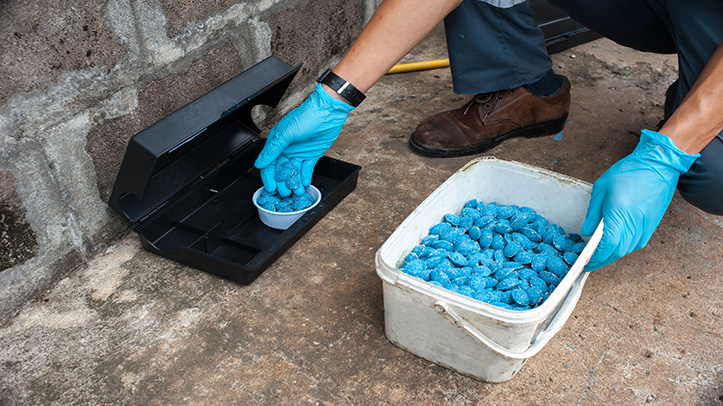Pest professionals know that controlling rats and mice isn’t as simple as picking the strongest bait off the shelf and leaving it down for rodents to consume; in fact, there are a whole host of factors that should be considered!
Before even reaching for a rodenticide, the best practice is to first carry out environmental management such as proofing buildings and tidying the site, and then explore non-chemical control methods, whether it is utilising natural predators, using live traps, or instant-kill traps.
But when chemical control is required, Laurence Barnard, country business manager for BASF’s Professional & Specialty Solutions, said that many don’t realise that bait rotation is vital to long-term success.
Mr Barnard said: “Successful rodent control isn’t just about choosing the right bait. Of course, factors such as speed of control, potency, and palatability are incredibly important, but it is critical to alternate your baits.
“The reason for this is two-fold – some of the biggest challenges facing pest controllers are rodenticide resistance and bait shyness. – rodenticide resistance is a phenomenon that has been causing increasing issues across the country, particularly in certain areas such as Greater Manchester or South Central England.”
Much like how humans can become resistant to certain antibiotics, rodents have developed resistance to the active ingredients in first-generation anticoagulants and some second-generation anticoagulants, particularly difenacoum and bromadiolone.
Mr Barnard continued: “To combat any potential resistance problem, technicians should be utilising rodenticides that contain either cholecalciferol or flocoumafen as the active ingredient, as there is no known resistance to either active. Ideally, usage should be rotated between the two to prevent any possible future anticoagulant resistance from developing.
“Also, although more prevalent in mice, rodents can become bored of the rodenticide on offer and search for alternative food sources. Of course, the rodenticide used must be highly palatable and potent.
“Product stewardship is essential to ensure the future-proofing of effective solutions on the market and safeguard the pest management toolbox.”
How often should pest controllers be rotating their baits?
Mr Barnard said: “It is recommended that rodenticides should be changed every three to four months as best practice, with a minimum of every six months, to ensure a long-term, successful pest management programme.”


